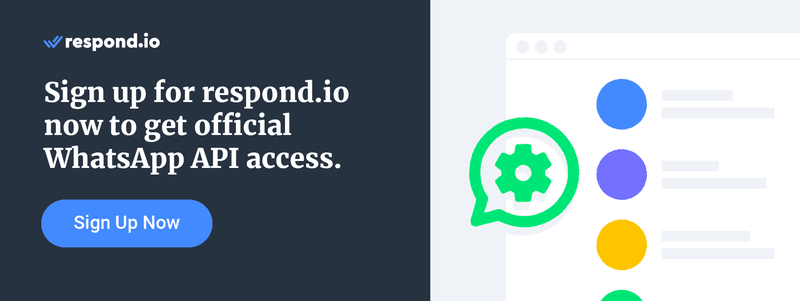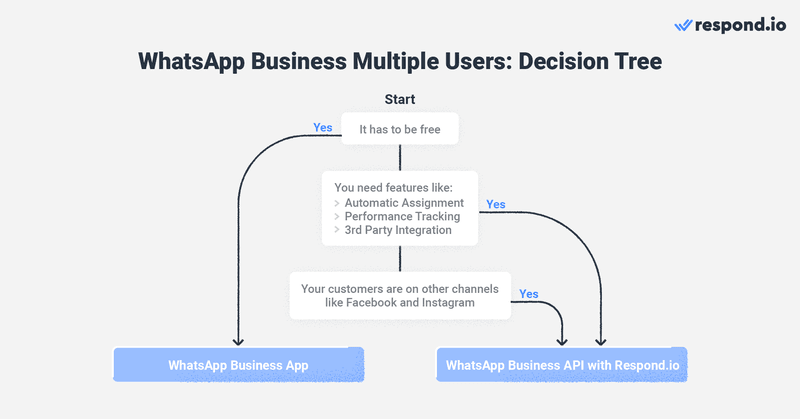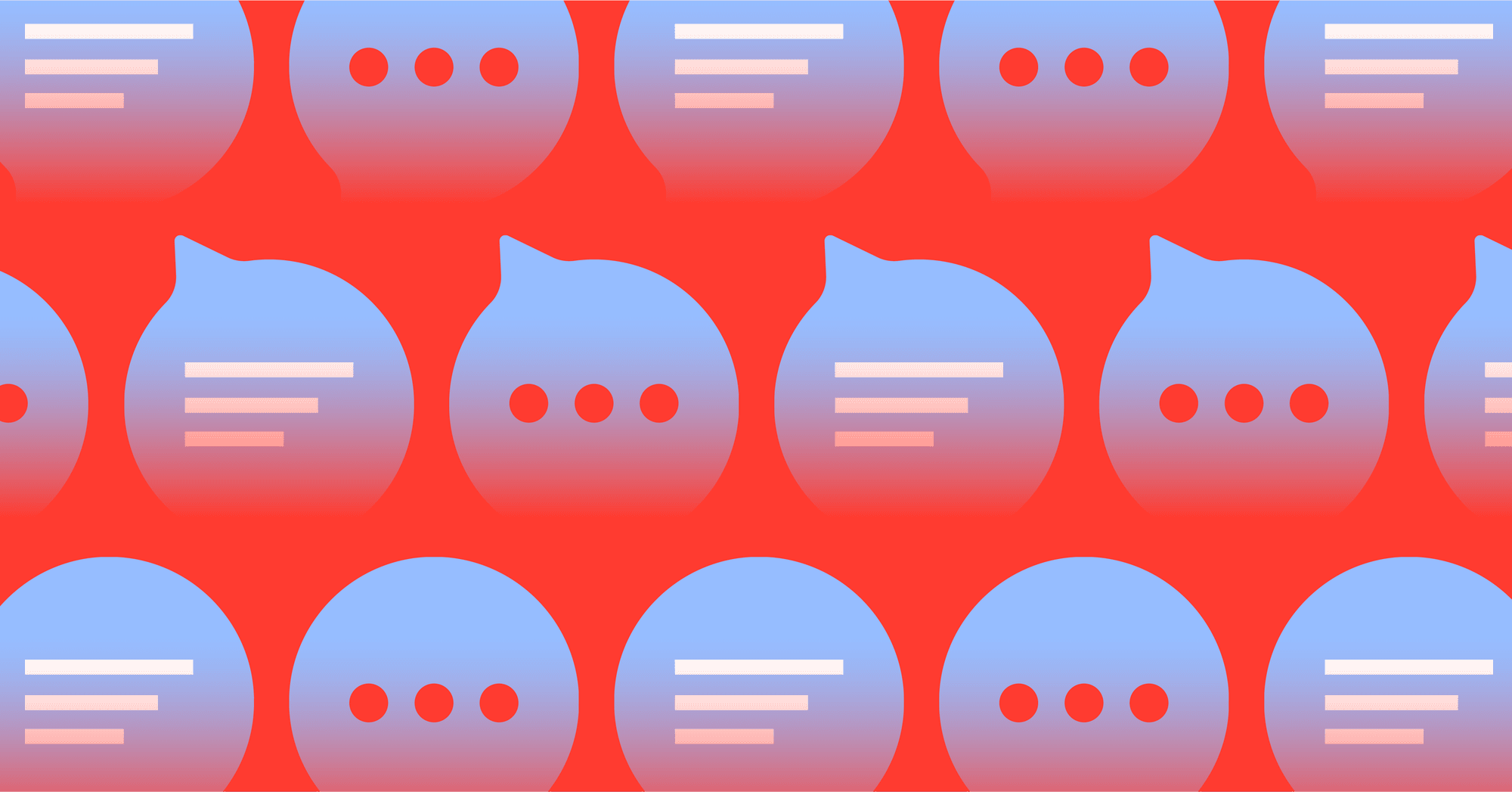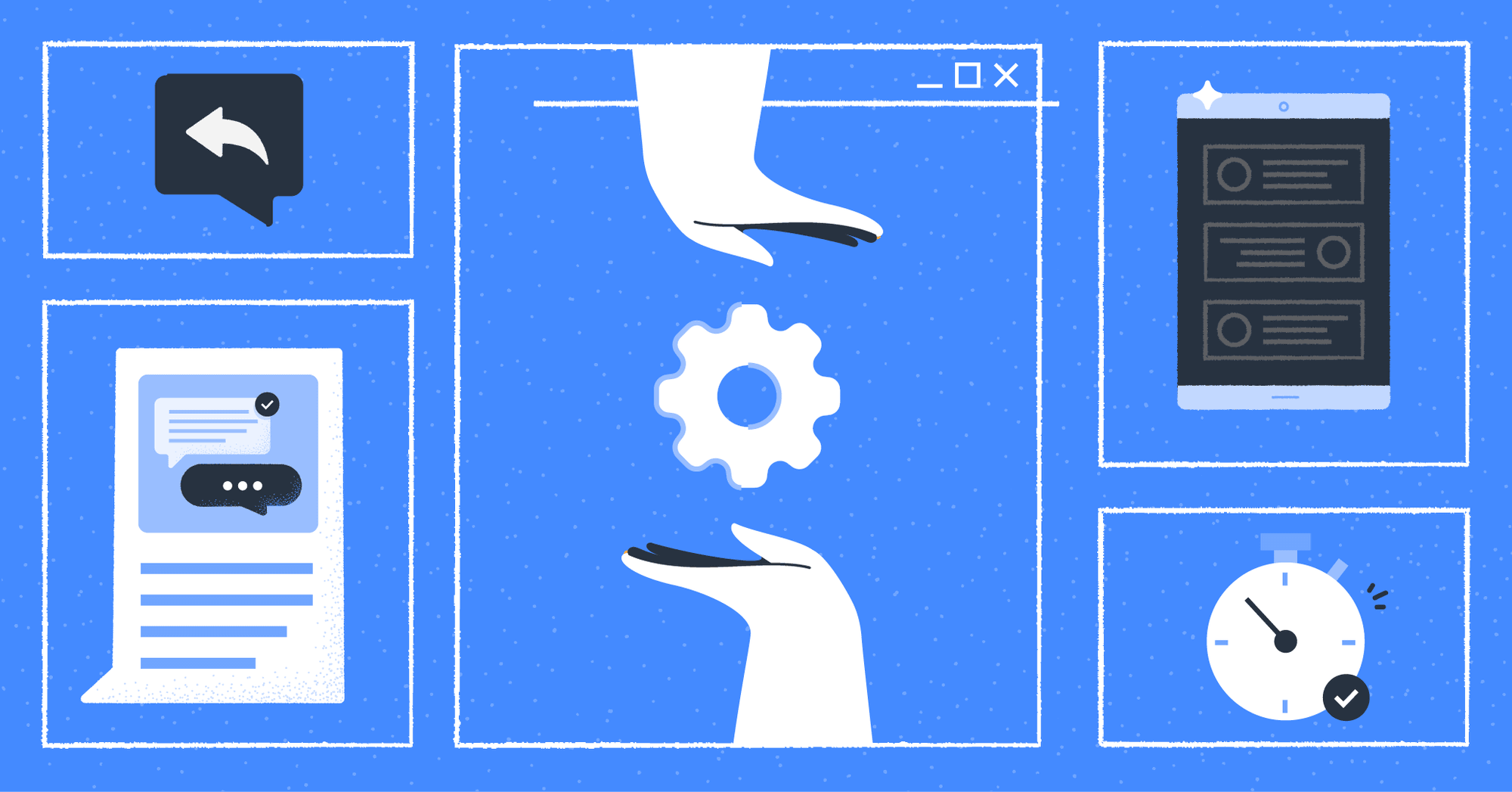Have your email campaigns been falling flat? Consider WhatsApp marketing, a type of instant messenger marketing that helps businesses reach a wider audience, make personal connections with customers and ultimately increase sales. We’ll show you how to use WhatsApp marketing, along with a few examples of a successful WhatsApp campaign.

Marketing on WhatsApp vs. Traditional Methods
A typical marketing strategy involves several touch points to engage prospects and ultimately convert them into customers. Traditionally, this starts with ads. Businesses then aim to get prospects’ contact information to continue marketing via email.
The most common example is when a prospect opts in to a newsletter or clicks on an ad and enters their email address to get something like a discount. The business can then further contact the prospect to nurture their interest and nudge them toward a purchase.
Email Marketing vs. WhatsApp Marketing
However, people are constantly bombarded with emails now. Most promotional emails sit in inboxes unread or are relegated to the Spam folder. Because of this, email has an open rate of about 15%; 85% of people who receive your emails won’t even look at them.
The fact is, people are using email less for communication in general; instant messaging is the way of the future. And where are most people messaging? WhatsApp! With over 2 billion users around the world, WhatsApp is the most popular messaging app.

In contrast to email’s low open rate, 80% of WhatsApp messages are seen within 5 minutes. Interactive messages can be used to quickly engage prospects and encourage response. Emojis and stickers also give them a more human feel.
Benefits of Using WhatsApp Marketing
Marketing over WhatsApp has many benefits for businesses of any size. If your customers use WhatsApp, you need to reach out to them there. Here are just a few of the reasons:
First, WhatsApp marketing proactively reaches out to prospects where they spend most of their time. Unlike most messaging apps, WhatsApp allows you to start conversations with contacts who opt-in to hear from you.
It’s also cost-effective. WhatsApp Business App is free, so it’s great for small businesses on a limited budget. Larger businesses will need to use WhatsApp Business API, which costs more but has great returns. We’ll discuss these options more later.

WhatsApp marketing spurs prospects into taking action with interactive Reply Buttons or List Messages. Automation can also be used to facilitate conversations with a realistic persona, as in the example of Maggi’s Chef Kim campaign, which we’ll go into later.
Finally, WhatsApp has versatile applications through the full marketing funnel. Use a WhatsApp link in click-to-chat ads and lead generation campaigns to get contacts; then use it as a remarketing tool to inform prospects about promotions and encourage repeat purchases.
What You Need to Know to Get Started
Before you start using WhatsApp for marketing, you’ll need to know about the different account types and their features.
WhatsApp Marketing Accounts
There are two types of accounts you can use for WhatsApp marketing: WhatsApp Business App and WhatsApp API. Each has its own features and limitations. For small businesses, WhatsApp Business App may be enough for your use cases.

For medium to large businesses, we recommend WhatsApp API. WhatsApp API allows you to connect to a business messaging platform like respond.io to set up customized Workflows, assign contacts to agents, and more.
WhatsApp Business App Limitations
WhatsApp Business App lacks advanced functions for marketing like the ability to set up drip campaigns and promotional push notifications. These actions can only be done with WhatsApp API connected to respond.io.
Another drawback to WhatsApp Business App is that for bulk messages you need to create broadcast lists, with a maximum of 256 contacts per list. On the other hand, with WhatsApp API, you can send bulk messages to an unlimited number of contacts depending on your tier level.
Costs and Regulations
WhatsApp Business App is completely free. WhatsApp API incurs costs, including the respond.io account fee, Business Solutions Providers (BSPs) fees, and WhatsApp conversation fees. That said, the potential benefits of WhatsApp promotional messages far outweigh the costs.

With both WhatsApp Business App and WhatsApp API, there are some regulations you need to follow. No one likes being spammed, and if you’re suspected of spamming, your account may be banned.
Firstly, Contacts have to opt in to receive promotional messages. Contacts can opt in by sending you a message, filling out a form, scanning your WhatsApp QR code or through a click-to-chat ad.

You also have to abide by the terms in WhatsApp’s Business and Commerce Policies. This includes only using pre-approved Message Templates for promotional content.
WhatsApp Marketing Quick Wins with respond.io
Once you have your WhatsApp Business App or WhatsApp API account ready, it’s easy to start fitting WhatsApp into your marketing strategy. Get creative and use respond.io to streamline the process.
5 Easy Steps to Execute Your WhatsApp Marketing Strategy
The marketing process is best illustrated by a funnel. Your WhatsApp marketing strategy can be seen in the same way. We’ll show you step-by-step how to use WhatsApp to guide prospects down the funnel.

1. Generate Leads with a WhatsApp Link or QR Code
Since you need to get prospects to message you before sending promotions, find creative ways to do this. We’ll talk about a few examples later. Think about what appeals to your audience.
Generate a WhatsApp link or QR code with respond.io to create ads or social media promotions. Click-to-chat ads make it easy for prospects to respond. All they have to do is click the WhatsApp link and you’ll get their phone number; there’s no need to fill out a form.
2. Build and Segment Your Audience
You can also work with your existing phone contact list. Import it into respond.io to use with your WhatsApp campaigns.
Add Tags to segment your audience. Tag them according to where they came from (e.g., WhatsApp ad, phone contacts)and what product or service they showed interest in.
3. Send Promotional Broadcasts
Once you’ve segmented your audience, you can start sending them relevant promotional messages. Tags come in handy here to ensure contacts get the type of messages they expect and won’t flag you as spam.

For example, you can send a message with an offer as soon as the contact opts in and then send monthly messages about the latest specials, along with occasional messages about products they’ve expressed interest in.
You can also use WhatsApp for remarketing to suggest related products or upgrades to your existing customers. Consider offering a loyalty discount to make the offer more enticing.
4. Guide Prospects through the Funnel with Drip Campaigns
Customize and automate your conversations further with WhatsApp drip campaigns. Most people won’t make a purchase the first time they hear about a product. They need to consider it over time and be reminded of its value.

Set triggers to send automated messages, for example, if they have an abandoned cart or if their trial is about to expire. WhatsApp abandoned cart messages give you the opportunity to draw back as many as 60% of customers.
Setting up WhatsApp promotional messages in response to specified trigger events involves a similar process as WhatsApp push notifications. You’ll soon be able to do this via Messages API through a Zapier integration.
5. Conduct Customer Satisfaction Surveys and Encourage Referrals
Happy customers will do marketing for you by referring their friends. Use respond.io to create an automated customer satisfaction survey. Not only will you get valuable feedback from this, but you can also offer highly satisfied customers referral incentives.

For example, create a Workflow where customers who gave 4-5 stars in a survey get a promo code to share. When the code is used, the customer gets a discount. Customers who gave 1-3 stars are given the option to chat with an agent about their issues.
Take Inspiration from these WhatsApp Marketing Campaigns
Marketing on WhatsApp is a great way to increase your engagement and ultimately convert leads into sales. Many companies have proved this with successful WhatsApp campaigns. Let’s have a look at a couple of them.
WhatsApp Campaign: Maggi Germany WhatsApp Cooking Classes
Globally popular German food brand and cooking school Maggi wanted to encourage customers to cook at home with Maggi products. To do this, it developed a virtual cooking course conducted entirely over WhatsApp.

Users message virtual assistant Kim who guides them step-by-step through simple recipes. Kim also provides users with a shopping list along with helpful tips and quizzes on nutrition and food safety.
How They Did It
Maggi announced the WhatsApp campaign on its website, in newsletters, and in press releases. It also promoted it through click-to-chat ads on Facebook and Instagram.
The Results:
In the first eight weeks after the launch, Kim had received over 200,000 messages. There was a major increase in brand awareness, and surveys conducted showed that ads for this WhatsApp campaign were more memorable, with a 4.2 increase in ad recall lift over other ads.
Customers appreciated the personal connection through an app they use daily. While they may not have considered cooking courses in the past, their interactions with Kim showed them how easy it was to make cooking a part of their routine.
WhatsApp Campaign: Vyatta Boosts Sales with Click-to-Chat Ads
Indonesian brand Vyatta produces a range of tech accessories, including headphones, smartwatches, speakers and chargers. It regularly used Facebook ads to send buyers to its online store.

However, Vyatta wanted to see if chatting with a sales representative to get more information about the product would increase purchases, so it tried click-to-chat ads directing buyers to WhatsApp rather than to the store.
How They Did It
To see which method was more successful, directing buyers to WhatsApp or to the store, Vyatta ran a split test over six weeks. It used both types of ads and then compared the results.
The Results
The click-to-WhatsApp ads were a resounding success. Vyatta found that these ads resulted in 5X more purchases at 79% less cost per purchase.
Prospects who interacted with WhatsApp also viewed 2X more product pages and completed 2X more add-to-cart actions than those who interacted with the other ads.
Have these campaigns inspired you? Start implementing your own WhatsApp marketing strategy today. Sign up for a respond.io account and connect WhatsApp API at a click.

Further Reading
To learn more about using WhatsApp for marketing, check out these articles:
- WhatsApp Interactive Message: A How-To Guide
- The Practical Guide to WhatsApp Message Templates
- The Practical Guide to WhatsApp Ads



























